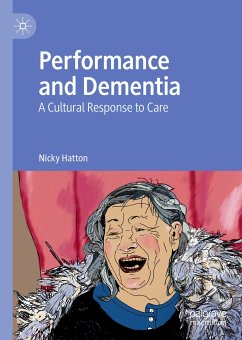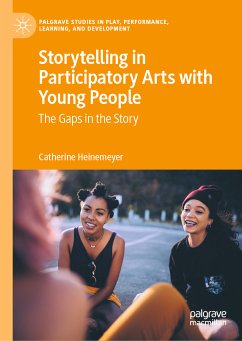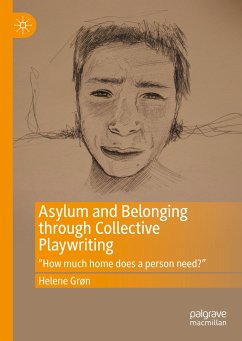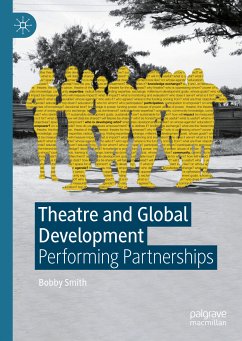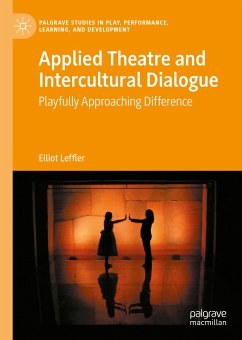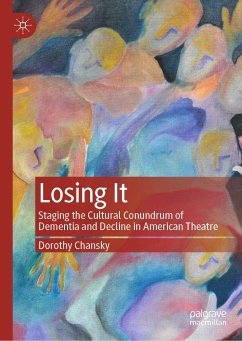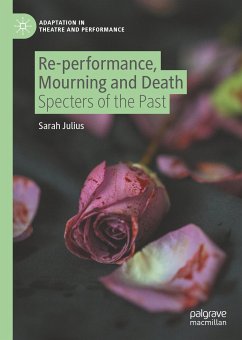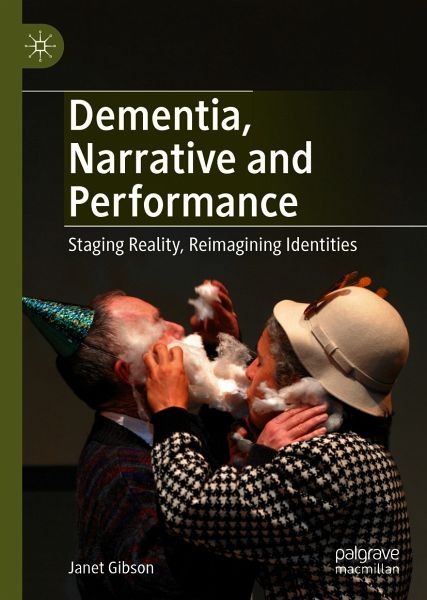
Dementia, Narrative and Performance (eBook, PDF)
Staging Reality, Reimagining Identities
Versandkostenfrei!
Sofort per Download lieferbar
72,95 €
inkl. MwSt.
Weitere Ausgaben:

PAYBACK Punkte
36 °P sammeln!
Focusing mainly on case studies from Australia and the United States of America, this book considers how people with dementia represent themselves and are represented in 'theatre of the real' productions and care home interventions, assessing the extent to which the 'right kind' of dementia story is being affirmed or challenged. It argues that this type of story - one of tragedy, loss of personhood, biomedical deficit, and socio-economic 'crisis - produces dementia and the people living with it, as much as biology does. It proposes two novel ideas. One is that the 'gaze' of theatre and perform...
Focusing mainly on case studies from Australia and the United States of America, this book considers how people with dementia represent themselves and are represented in 'theatre of the real' productions and care home interventions, assessing the extent to which the 'right kind' of dementia story is being affirmed or challenged. It argues that this type of story - one of tragedy, loss of personhood, biomedical deficit, and socio-economic 'crisis - produces dementia and the people living with it, as much as biology does. It proposes two novel ideas. One is that the 'gaze' of theatre and performance offers a reframing of some of the behaviours and actions of people with dementia, through which deficit views can be changed to ones of possibility. The other is that, conversely, dementia offers productive perspectives on 'theatre of the real'.
Scanning contemporary critical studies about and practices of 'theatre of the real' performances and applied theatre interventions,the book probes what it means when certain 'theatre of the real' practices (specifically verbatim and autobiographical) interact with storytellers considered, culturally, to be 'unreliable narrators'. It also explores whether autobiographical theatre is useful in reinforcing a sense of 'self' for those deemed no longer to have one. With a focus on the relationship between stories and selves, the book investigates how selves might be rethought so that they are not contingent on the production of lucid self-narratives, consistent language, and truthful memories.
Scanning contemporary critical studies about and practices of 'theatre of the real' performances and applied theatre interventions,the book probes what it means when certain 'theatre of the real' practices (specifically verbatim and autobiographical) interact with storytellers considered, culturally, to be 'unreliable narrators'. It also explores whether autobiographical theatre is useful in reinforcing a sense of 'self' for those deemed no longer to have one. With a focus on the relationship between stories and selves, the book investigates how selves might be rethought so that they are not contingent on the production of lucid self-narratives, consistent language, and truthful memories.
Dieser Download kann aus rechtlichen Gründen nur mit Rechnungsadresse in A, B, BG, CY, CZ, D, DK, EW, E, FIN, F, GR, HR, H, IRL, I, LT, L, LR, M, NL, PL, P, R, S, SLO, SK ausgeliefert werden.



